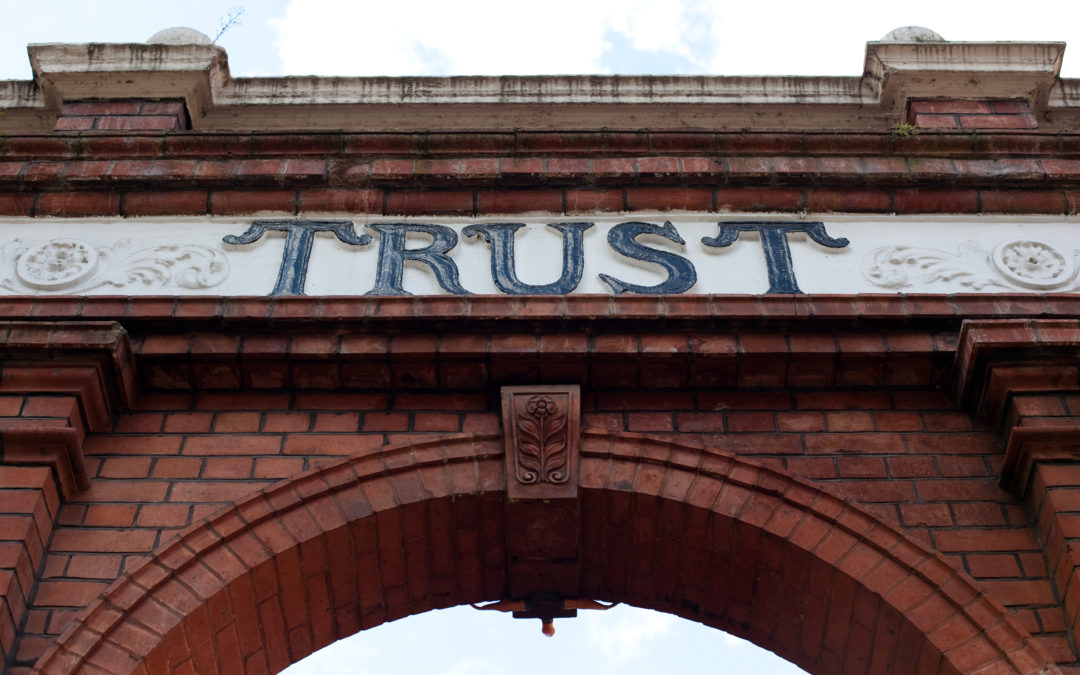Great leaders are great trust builders. Leadership success, in every industry, in every country, in every family, is determined by the strength of relationships. Strong relationships are built on a foundation of trust. As a leader, the greatest skill you can possess is the ability to earn, build, and maintain trust.
People often believe that it takes a long time to build trust. We think we have to know people or work with them for a long time before we can trust them. But think about every time you get behind the wheel of your car. You instantly trust strangers on the road and you continue to trust them until they do something to break that trust. This is because trust is a choice.
There are two key principles to understand when it comes to building trust as a leader. The first key is that trust is more dependent on action than it is on time. The more actions you take to build trust, the quicker it will develop. The second key is that trust is like a muscle in that you must continuously exercise it to keep it strong. Ignore it and it will become weak over time.
Earning someone’s trust can mean work on your part, and you may ask if the effort is worth the payoff. Studies have shown that there is a direct correlation between the level of trust in an organization and the strength of the bottom line. In other words, trust increases profits. If you need to improve productivity, increase trust. If you need to increase employee engagement, increase trust. If you need to reduce costs, increase trust. If you need to deliver better customer service, increase trust.
It is true that if you are trying to rebuild a trust that has been broken, then that can take a very long time. But building trust in the first place, tends to be relatively quick and easy, if you know how to do it.
Care About People.
As the saying goes, “people don’t care how much you know until they know how much you care.” As a leader, you must genuinely care for the well-being of the people on your team, and you have to do it first. When people know and believe we care about them, they will follow us – even when times are bad. When we care, they care, and the seeds of mutual trust are planted.
Listen First.
As leaders we are often in the habit of doing more talking than listening. We sometimes think that dispensing our wisdom is the reason we promoted in the first place. The higher you go up the ladder, the more you need to listen. Be sure to listen with the intent to understand and not with the intent to respond. Trust goes up immediately when people feel heard.
Be Open.
Unless you have a legal or moral reason for not disclosing all the facts, then give your people as much information as you can. Don’t hold back. Give them the good, the bad and the ugly, and you will be rewarded for trusting them with information. Openness is a two-way street when it comes to building trust. If you are open with them, they will be more open with you. Having an open-door policy has nothing to do with the door. It has to do with how comfortable people are coming to you with both good news and bad. If they are afraid to bring you the latter, your success as a leader goes way down. So keep your ears, eyes, heart and door open when it comes to listening to others.
Knowing what not to do is often just as important as knowing what to do, and this is particularly true when it comes to building trust. Do your best to avoid some of the more common pitfalls.
Don’t Sacrifice Face-time.
In today’s technology driven world, we have become more removed from people. Whether they are working from home or in an office across the globe, technology has made it more convenient and cost effective to work in a virtual environment. That’s all well and good, but you need face time to build trust and strong relationships. Spending quality time with each of your people, and making the investment get your team together will pay high trust dividends.
Don’t Hide Mistakes.
We know what happens when people are caught with their hand in the cookie jar and they take too long to come clean. Reputations are damaged and trust plummets. When you know you’re wrong, admit it quickly and begin to rebuild. When it comes to trust, people will be more likely to give you a second chance when you’re honest and open about your mistakes. If you’re honest with them, they’ll be honest with you.
Don’t be Inconsistent.
People find it easier to trust others when they know what to expect. Don’t act unexpectedly without explaining your actions. Predictability is like a security blanket for many people and if you take it away without a good reason, you’ll ruffle the feathers of even your most trusted performers. This is particularly relevant during times of change, and poorly managed change can destroy trust in the blink of an eye.
Don’t Ignore It.
Trust requires maintenance and needs constant attention. As a leader you must be taking small actions on a regular basis to keep the trust muscle strong. People, being people, will sometimes disappoint one another. When trust is high, the relationship can weather the storm and survive. When it is low, the relationship can capsize.
At the core of each success and each failure is a relationship—good or bad, strong or weak. In order to ensure a higher rate of success, the smart leader will become a skilled trust builder, and the result will be strong relationships that will be good for both the business and the people.
